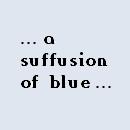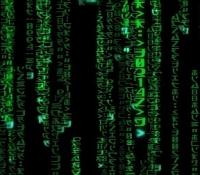timeout 20 default 0 title WINDOWS XP root (hd0,0) chainloader /ntldr title CommandLine commandline title Reboot reboot title Halt halt
Boot to Windows XP from Grub4dos
#1

Posted 01 August 2013 - 06:37 PM
#2

Posted 01 August 2013 - 07:10 PM
You are likely having an issue with disk (device enumeration).
When you boot normally your internal hard disk is FIRST (and possibly only) Disk, i.e., in grub4dos notation, (hd0).
The Windows (the folder \Windows\System32\) is most likely - like NTLDR is - on it's first partition, hence (hd0,0).
Everything works, and in the BOOT.INI you have a line similar to:
multi(0)disk(0)rdisk(0)partition(1)\WINDOWS="Microsoft Windows XP Professional" /noexecute=optin /fastdetect
whcich means, on ARCPATH notation:
the "Windows":
\WINDOWS
that resides on first partition:
partition(1)
of first disk:
rdisk(0)
(the multi(0)disk(0) is irrelevant).
When you boot from the USB stick the BIOS enumerates the stick as FIRST device, i.e. the devices become:
- (hd0) the USB stick
- (hd1) the internal disk
In ARCPATH syntax, the (hd1) is multi(0)disk(0)rdisk(1)partition(1) but your BOOT.INI entry has multi(0)disk(0)rdisk(0)partition(1), thus it attempts to find \Windows\System32\ (and the HAL) on the USB stick, and since it is not there it throws an error.
Solution:
exchange device order in grub4dos, i.e. try on command line:
map (hd0) (hd1) map (hd1) (hd0) map --hook root (hd0,0) chainloader /ntldr boot
![]()
Wonko
#3

Posted 12 August 2013 - 04:31 PM
This should scan all drives for ntldr and boot it if it helps.
iftitle [find --set-root --devices=h /NTLDR && call set ntldr=%@root^%] %ntldr% NTLDR of Windows NT/2K/XP\n Boot NTLDR of Windows NT/2K/XP\n %ntldr% #find --set-root --ignore-floppies --ignore-cd /ntldr map () %ntldr% map %ntldr% () map --rehook find --set-root --ignore-floppies --ignore-cd %ntldr%/ntldr chainloader %ntldr%/ntldr
#4

Posted 12 August 2013 - 11:18 PM
This should scan all drives for ntldr and boot it if it helps.iftitle [find --set-root --devices=h /NTLDR && call set ntldr=%@root^%] %ntldr% NTLDR of Windows NT/2K/XP\n Boot NTLDR of Windows NT/2K/XP\n %ntldr%#find --set-root --ignore-floppies --ignore-cd /ntldrmap () %ntldr%map %ntldr% ()map --rehookfind --set-root --ignore-floppies --ignore-cd %ntldr%/ntldrchainloader %ntldr%/ntldr
hi halikus, that would be very handy! what happens when more than one ntldr is present when using this? thanks
#5

Posted 13 August 2013 - 01:32 AM
Much like the embedded grldr, it just scans the root of all drives until it finds the file, and then tries to boot it\shows a menu entry. There are more complicated ways to populate all instances of ntldr, but who has more than 1 instance of Win XP these day? 1 is pushing it ![]()
I adapted it from the following for bootmgr, so if it doesn't work, its because i missed something simple. I will add this. /bootmgr is useless without \boot\bcd, so for error checking in anything bootmgr related on HDDs, i add a check for both files. I know ntldr used to be a thorn in my side as it was a common file in the root of various things for a long time, and the wrong drive would often get flagged if i had another ntldr in the root of another drive. So it doesn't get picked up as a win install cd or etc, i would put a check in for /ntldr and /windows/explorer.exe or something.
iftitle [find --set-root --devices=h /bootmgr && call set bootmgr=%@root^%] Boot BOOTMGR of Windows VISTA/WIN7/WIN2008 on %bootmgr%\n Boot BOOTMGR of Windows VISTA/WIN7/WIN2008 on %bootmgr% chainloader %bootmgr%/bootmgr
#6

Posted 13 August 2013 - 05:39 AM
Im trying to see how I could use your entries in my complicated usb hdd set-up or if it is even useful in this case because I have entries for these already but it would be nice to have only one extra that would find an XP on a systems internal hdd that I booted from usb that has five on it already. sorry if that doesnt make sense.. Im just curious more than anything. grub4dos is awesome! thanks
#7

Posted 13 August 2013 - 05:54 AM
Hmmm, maybe try this if complicated is ok.
Run this in menu.lst or beginning of setup as a g4b
!BAT #DetHDD.g4b set n=1 set skip=0 find --devices=h > (md)0x20A+6 call :loop clear set dev goto :EOF :loop debug off cat --locate=\x0a --number=1 --skip=%skip% (md)0x20A+6 || exit set /a length=%?%-%skip% cat --skip=%skip% --length=%length% (md)0x20A+6 | set dev%n%= set /a skip=%length%+%skip%+1 set /a n=%n%+1 goto :loop
This will find all hard drives and give them a variable of %dev1% %dev2% %dev3% , etc.
Then, you can optionally run something like this as a g4b to search all the hdds found for ntldr, or whatever else you want. Repeat %dev1% to %dev9%
!BAT if "%dev1%"=="" && goto :eof if not "%dev1%"=="" && ls %dev1%/_ISO/ > nul && set isodir1=(/_ISO) if not "%dev1%"=="" && ls %dev1%/sources/ > nul && set sources1=(/sources) if not "%dev1%"=="" && if exist %dev1%/bootmgr && if exist %dev1%/boot/BCD && set winmgr1=(/bootmgr) if not "%dev1%"=="" && if exist %dev1%/ntldr && set winldr1=(/ntldr) if not "%dev1%"=="" && if exist %dev1%/Windows/explorer.exe && set windir1=(Windows) if not "%dev1%"=="" && if exist %dev1%/boot/grub/menu.lst && set grldr1=(Grub) if not "%dev1%"=="" && if exist %dev1%/boot/grub/g2ldr && set g2ldr1=(Grub2) if not "%dev1%"=="" && if exist %dev1%/casper/vmlinuz && if exist %dev1%/casper/initrd.lz && set casper1=(Ubuntu) if "%dev2%"=="" && goto :eof if not "%dev2%"=="" && if exist %dev2%/ntldr && set winldr2=(/ntldr) 3 4 etc
....and then use a menu.lst with this (2nd g4b not needed)
iftitle [if exist %dev1%/ntldr] Boot XP /ntldr from %dev1%\n Boot XP\n %dev1% /ntldr
root %dev1%
chainloader %dev1%/ntldr
iftitle [if exist %dev2%/ntldr] Boot XP /ntldr from %dev2%\n Boot XP\n %dev2% /ntldr
root %dev2%
chainloader %dev2%/ntldr
etc to dev9
Its maybe not the best solution, but it will work. I use it to display all the goodies on a drive with a menu entry like this
iftitle [if not "%dev1%"=="" && if exist %dev1%/bootmgr && if exist %dev1%/boot/BCD] %dev1% Boot Windows Vista\\7\\8\n %dev1% Boot Windows Vista\\7\\8\n %dev1%/bootmgr
root %dev1%
chainloader %dev1%/bootmgr
or this (2nd g4b needed)
iftitle [if not "%dev1%"==""] **** %dev1% %isodir1%%casper1%%sources1%%winmgr1%%winldr1%%windir1%%grldr1%%g2ldr1% ****\n %dev1% %isodir1%%sources1%%winmgr1%%windir1%%syslinux1%%grldr1%%g2ldr1%%casper1%
set hdd=%dev1%
set FCOUNTED=
/%grub%/Countfiles.g4b
configfile /%grub%/menu2HDD.lst
Edited by halikus, 13 August 2013 - 06:01 AM.
0 user(s) are reading this topic
0 members, 0 guests, 0 anonymous users














